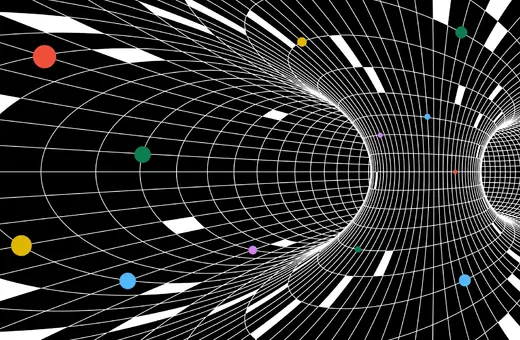Philosophers since Descartes have questioned whether our experience reflects a reality outside of our minds. In this instalment of our idealism series, in partnership with the Essentia Foundation, Paul Franks argues that the basic insight of Kant’s approach - perspectivism - harmonizes far better with our ordinary experience of the world, and with Einstein’s relativistic physics, than Berkeley’s immaterialist view.
For all I know on the basis of my current experience alone, I could be living in the matrix instead of inhabiting the mind-independent world. My experience could seem just as it seems right now, but it could be caused by something other than the mind-independent world in which I take myself to perceive and act. This familiar thought may be motivated by consideration of dreams, as it was for Descartes, or by more contemporary reflections on virtual reality. From this thought, many philosophers have inferred that what I perceive at any given moment is always and only mind-dependent, an inner world. Kant calls this empirical or material idealism: the objects we experience, the material causes of our sensations, are not real. It seems to lead to a sceptical worry: how can I know that I don’t inhabit the matrix: a virtual or ideal reality, with an opaque causal ground? Both Berkeley’s immaterialist idealism and Kant’s empirical realism offer ways out of the matrix. But Kant’s solution does what Berkeley’s cannot: it vindicates the everyday world in which we determine the sequence of our thoughts in time by means of mind-independent objects and events.
According to what has come to be called Berkeley’s master argument, there is no way to think the idea that terms such as “mind-independent reality” purport to express.
But say you, surely there is nothing easier than to imagine trees, for instance in a park, or books in a closet, and no one to perceive them. I answer, you may do so, there is no difficulty in it, but what is all this, I beseech you, more than framing in your mind certain ideas which you call books and trees, and at the same time omitting to frame the idea of any one that may perceive? . . . you have the power of imaging or framing ideas in your mind: but it doth not show that you can conceive them existing unconceived or unthought of, which is a manifest repugnancy. (Principles of Human Knowledge, sec. 23)
On its own, this argument seems fallacious. Perhaps, as Bertrand Russell suggested, Berkeley is confusing “idea” as act, which is mental, with “idea” as object of mental activity, which may not be mental. Others have suggested other fallacies.
___
Kant’s solution does what Berkeley’s cannot: it vindicates the everyday world in which we determine the sequence of our thoughts in time by means of mind-independent objects and events.
___





















Join the conversation